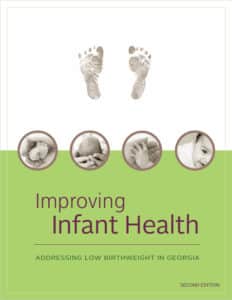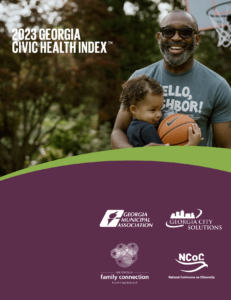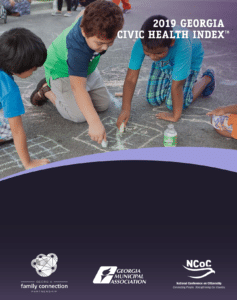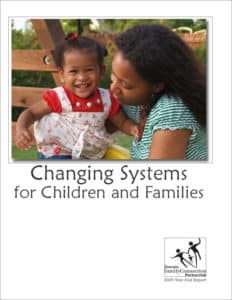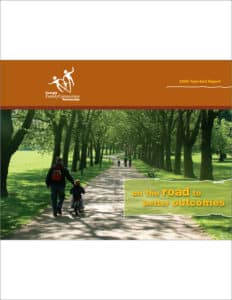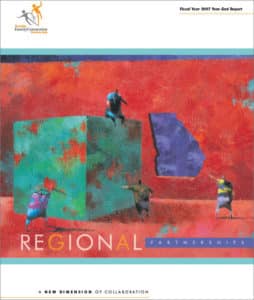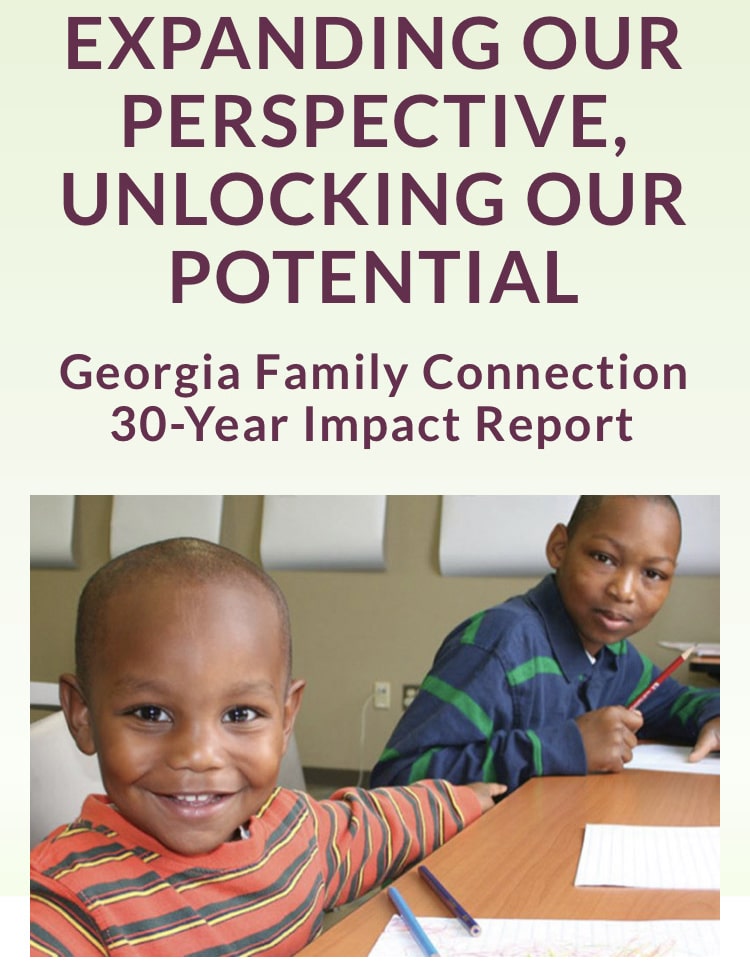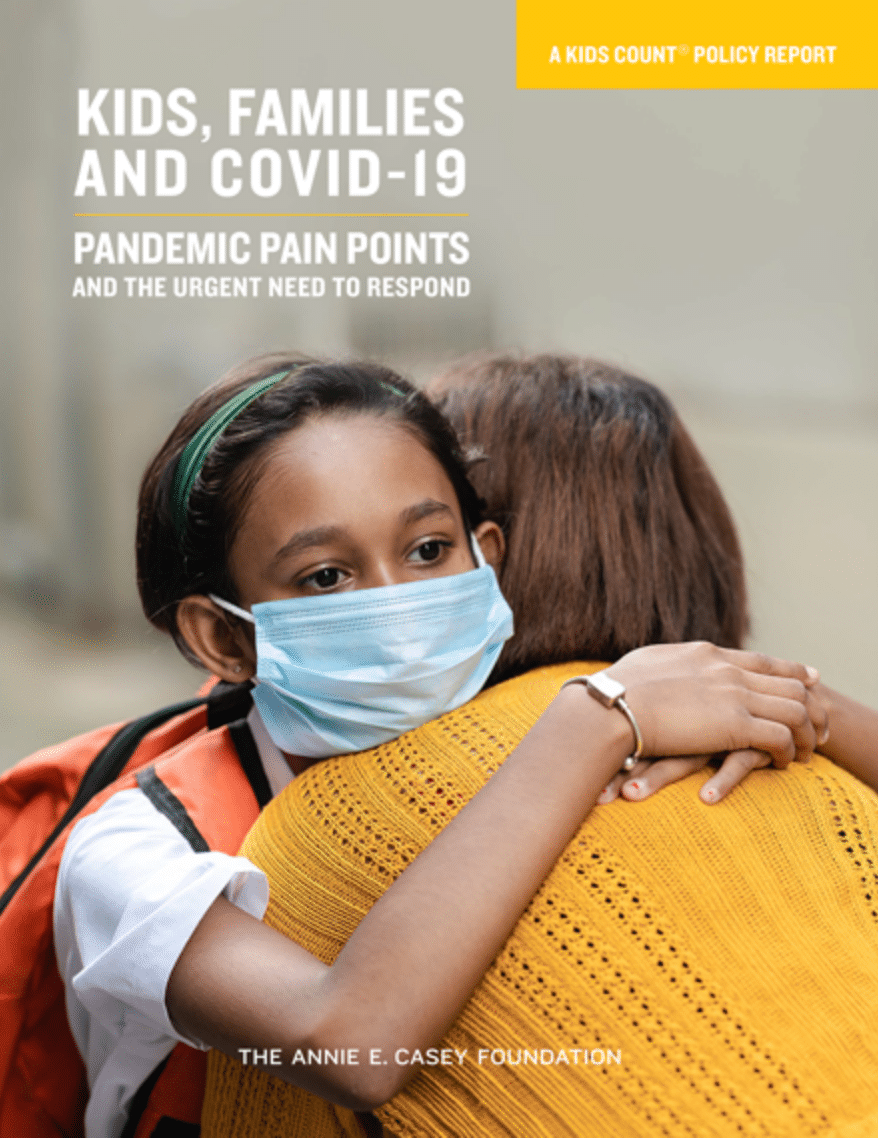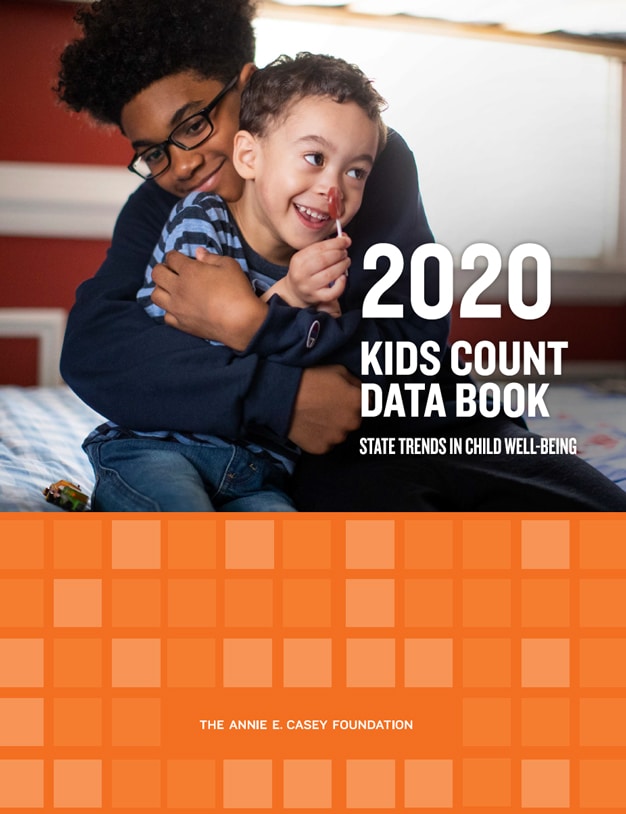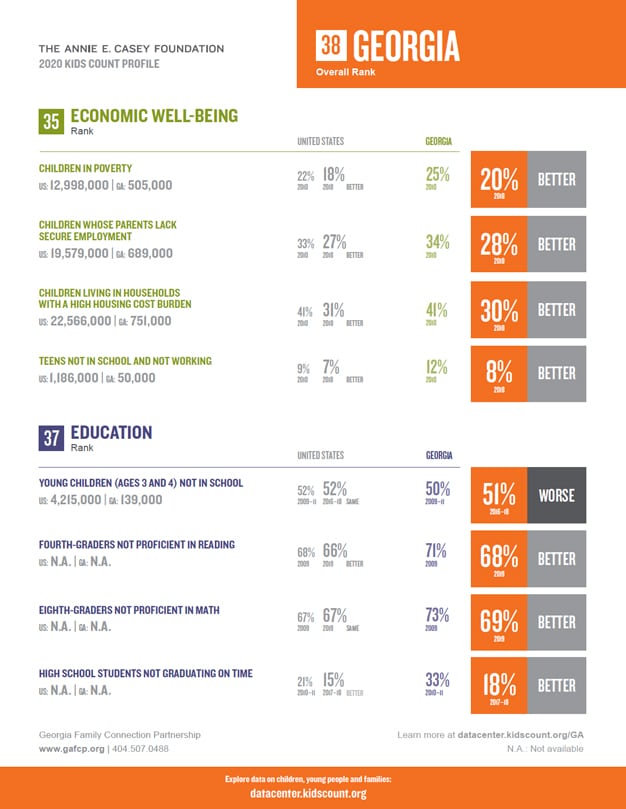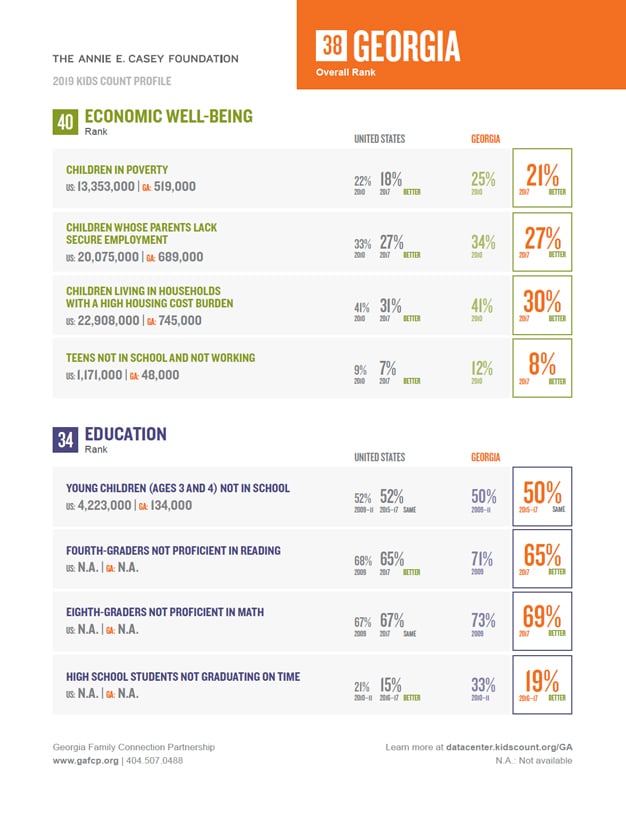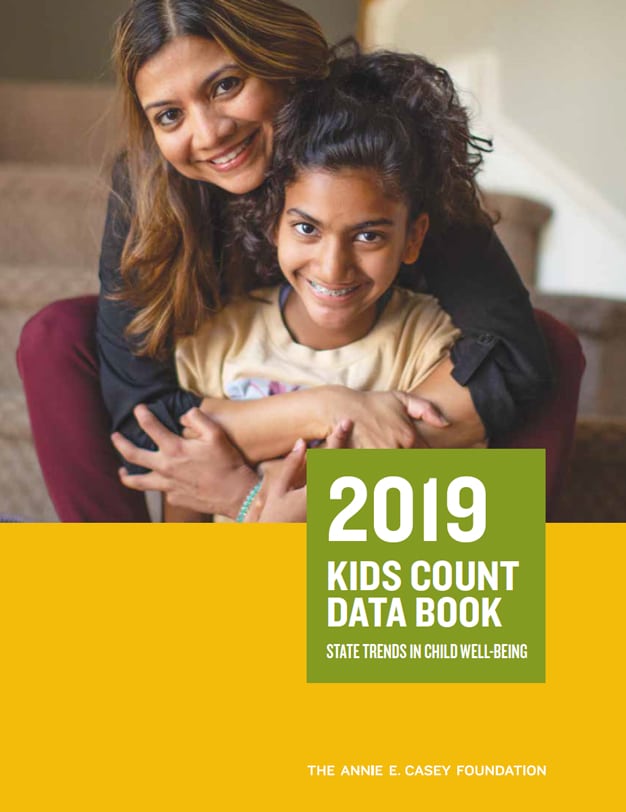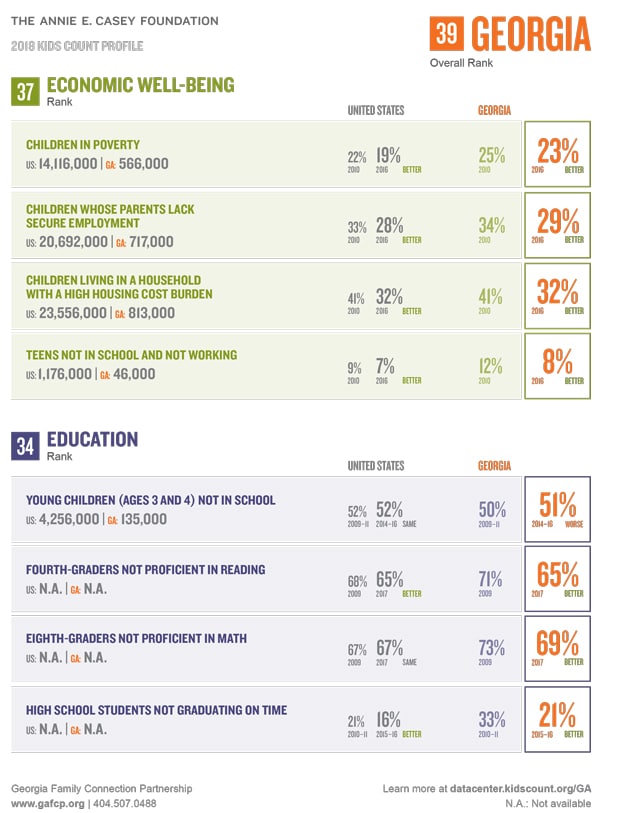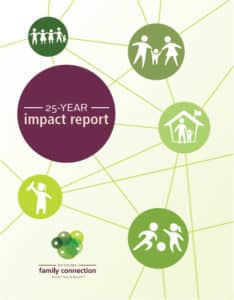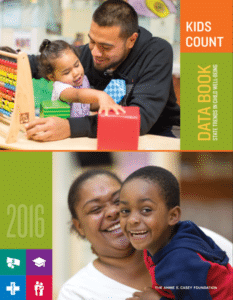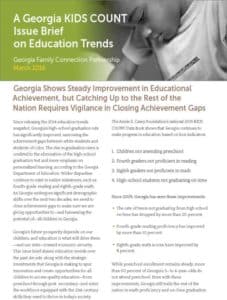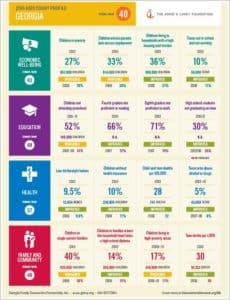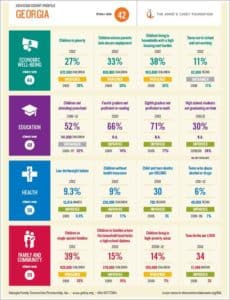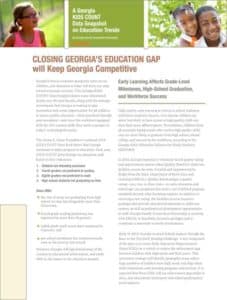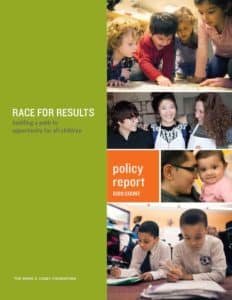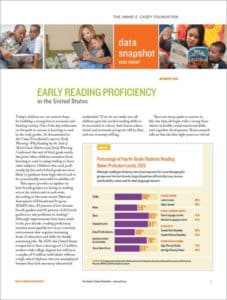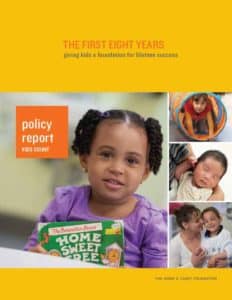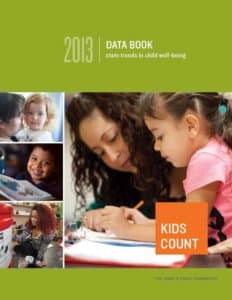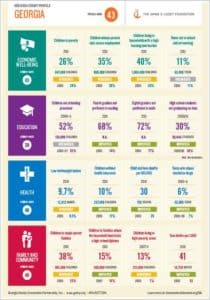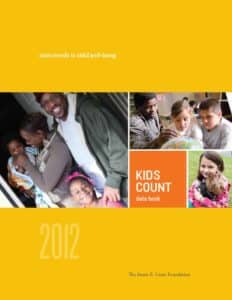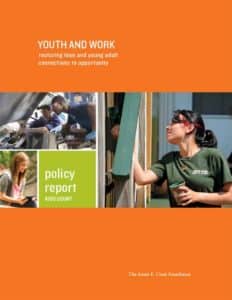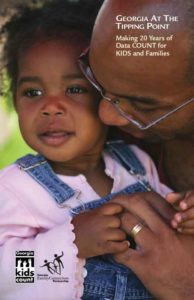Early Learning: Grade-Level Reading
Georgia’s children are failing to meet the basic standard in reading by the end of third grade, and that has significant and long-term consequences for all Georgians. Low achievement in reading translates to struggles in school and lifelong health issues. Children who grow up without reading skills struggle to be productive adults and are costly to our state in terms of remediation and Georgia’s ability to compete in a global economy.
We have an obligation to our children and to our state to tap every resource and seize every opportunity to close the literacy gap and raise the bar for academic success for all children in Georgia. And we must work together in our own communities, where new ideas come to life.
Low Birthweight Initiative
The rate of low-birthweight infants born in the United States has reached its highest level in almost 30 years. The rate in Georgia is among the highest in the nation at 9.6 percent.
We at Georgia Family Connection, the Promising Practices Network, and RAND Corporation are alarmed about increasing percentage of babies born at low birthweight. We are engaged in a collaborative initiative to increase awareness of low-birthweight trends and current promising practices prevention efforts.
The Facts
- Low birthweight infants are those born weighing less than 5.5 pounds.
- Low birthweight infants face higher rates of infant mortality, developmental challenges, and long-term disabilities.
- Preventing low birthweight infants is a serious public health challenge.
Low birthweight tends to be thought of as associated with multiple births resulting from fertility treatments and teen mothers. However, findings show that rates of low birthweight have grown for all groups of women—young and older, white and non-white mothers, singleton and multiples births. Researchers are puzzled as to why this is so.
It is our hope that by shining light on this issue and introducing new ideas in how to address it, more communities will focus on this indicator of child well-being.
2023 Georgia Civic Health Index
Georgia continues to struggle with its civic health, lagging the national averages across most measures, according to the third edition of the Georgia Civic Health Index. The report examines civic engagement measures and explores the way Georgians interact with each other, their communities, and in political life under four main areas of civic health: social connectedness, community involvement, political action, and confidence in institutions.
Research has linked strong civic health to other positive community outcomes, including economic resilience, workforce development, access to opportunity, lower violent crime rates, and community vitality, as well as other public health outcomes, including child development, adolescent well-being, mental health, and reduced mortality.
2019 Georgia Civic Health Index
The 2019 Georgia Civic Health Index examines three main areas: social connectedness, community involvement, and political action. The goals of the 2019 report are to support and broaden existing conversations, create and promote new conversations, and examine strategies and evidence-based practices to improve civic health at the state and local levels.
This report examines the way Georgians interact with each other, their communities, and political life; compares the ways that Georgia’s civic health has changed since the 2013 CHI was published; explores the way civic participation changes across demographic variables—income, educational attainment, age, race/ethnicity, and geography; and compares Georgia’s rates of civic participation to other states and to national averages.
2013 Georgia Civic Health Index
Civic health is the way communities are organized to define and address public problems. Civic health includes a wide range of civic engagement indicators, from social interactions among friends and family to the ways people participate in groups and communities. Civic health also reflects the ways people express themselves politically—in traditional measures like voter registration and turnout—as well as in social measures like discussing politics and sharing information.
Georgia’s first-ever Civic Health Index, released in 2013, seeks to answer the question: “How do Georgians participate in civic life and what does it mean for Georgia?” The report measures civic health across four domains:
- social connectedness, the ways Georgians connect with friends, family, and neighbors;
- community involvement, the ways in which people interact beyond their social circles, including group membership, volunteer activity and charitable giving, and attending public meetings;
- political action, which refers to voter registration and turnout, contacting elected officials, and expressing political opinions; and
- confidence in institutions, or how much Georgians trust public schools, corporations, and the media.
KIDS COUNT Data Books and Special Reports
The KIDS COUNT Data Book paints a picture of the conditions for children and families in Georgia and the rest of the nation. Policymakers, advocates, service providers, civic leaders, and funders use this information to inform their decisions about priorities, services, and resources for children and families.


